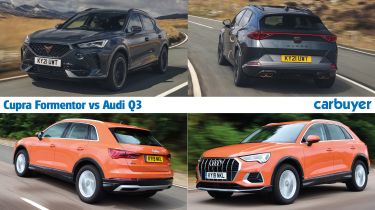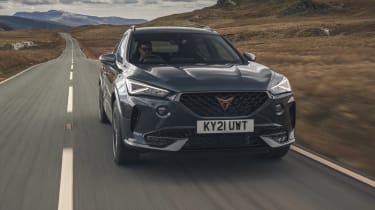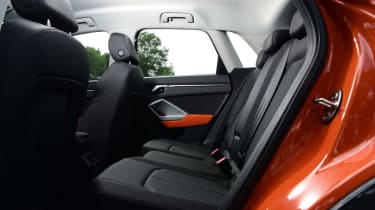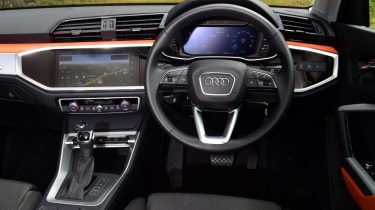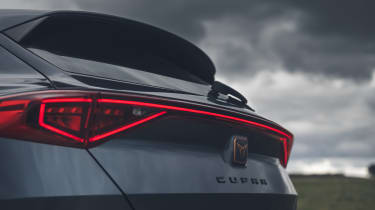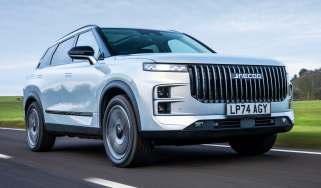Cupra Formentor vs Audi Q3: which should you buy?
After a sleek, stylish SUV? We've compared the sporty Cupra Formentor and the sumptuous Audi Q3 to see which is best
The Spanish car maker Cupra has come quite a long way in a relatively short space of time. It was only set up as the sporty sister brand to SEAT back in 2018, and now it has four separate cars in its line-up – with promises of plenty more coming in the not-too-distant future.
One of the more recent arrivals in its range is the Cupra Formentor family SUV. It’s not the company’s first SUV (that accolade belongs to its debut car, the Cupra Ateca), though it is Cupra’s first car that doesn’t use a pre-existing Seat car as a starting point. The Formentor also brings to the table fun handling and peppy performance – which, on the plug-in hybrid models, is complemented by impressive on-paper fuel economy.
With SUVs being so popular with new car buyers, there are plenty of alternatives to the Cupra Formentor out there, and one very strong rival is the Audi Q3. It’s not quite on par with the Cupra on the handling front, though the Audi’s plush cabin, strong engine range and good practicality help make the Q3 an accomplished all-rounder.
Which is the most economical?
Going purely on the raw statistics, the plug-in hybrid version of the Cupra Formentor is the most efficient vehicle here. The 201bhp petrol-electric model has an official fuel economy figure of 235.4mpg, and the more potent 242bhp model (which has performance more on par with a hot hatch) is still capable of up to 188.3mpg. In contrast, the 241bhp plug-in hybrid Audi Q3 returns up to 141.2mpg, which is quite a bit down on what the like-for-like Cupra is capable of.
However, as with all plug-in hybrids, those stellar fuel economy figures require you to cover a lot of ground using electric power alone. Otherwise, fuel economy will be more on par with a conventional petrol SUV, and you’ll have the extra penalty of lugging around all that extra weight from the hefty battery pack.
As a result, it’s the diesel versions of the Audi Q3 that should return the better fuel economy in everyday driving, and especially for drivers who regularly do lots of longer journeys. The more efficient 148bhp diesel can return up to 56.5mpg, and the more potent 197bhp diesel is capable of up to 46.3mpg. No non-hybrid Cupra Formentor can match this, primarily because the Cupra isn’t available with diesel engines.
Both the Cupra and Audi share the same 1.5-litre petrol engine, which is capable of similar fuel economy in both cars (44.8mpg for the Formentor; 44.1mpg for the Q3). For reference, the 188bhp and 241bhp versions of the 2.0-litre petrol in the Audi Q3 can return up to 37.2mpg and 32.8mpg respectively, whereas the 306bhp petrol in the Cupra can manage up to 33.8mpg.
Which is the best to drive?
If you’re after a sporty drive from your family SUV, then the Cupra Formentor will likely tick more boxes for you than the Audi Q3. Sharp steering responses, good body control when cornering and plenty of grip means the Cupra Formentor can be quite entertaining down a twisty road, which is perhaps appropriate given the Cupra name’s heritage on racy SEAT hot hatch models. Go for one of the more powerful Formentor variants, and you can marry this fun handling with strong performance, too.
 Top 10 best sports and performance SUVs 2025
Top 10 best sports and performance SUVs 2025
While those sporty characteristics mean the Cupra Formentor will be more suitable for drivers who want a bit of fun when driving their family SUV, they do bring about some drawbacks. A penalty for that body control in the corners is a firm ride that, while not overly stiff, may be a bit jarring for drivers used to more comfort-oriented cars. In contrast, the Audi Q3 takes almost the complete opposite approach: while it’s still somewhat decent in the corners, the Q3 is more in its element on more open stretches of road where it can make use of its supple ride and good refinement levels. As a long-distance car, the Audi is a bit more polished and commendable than the Cupra.
Which is the most practical for families?
The Cupra Formentor’s rakish coupe-like roofline may give the car a dynamic and athletic look, but it does eat into the available boot space. The petrol-only versions of the Formentor have up to 450 litres of luggage volume at their disposal, and due to the placement of the battery pack this drops to 345 litres on the plug-in hybrid models.
In contrast, the Audi Q3 has between 530 litres and 675 litres of boot space, depending on whether you’ve slid the rear row of seats to maximise passenger leg room or the load area size, though as with the Formentor this drops quite substantially on the plug-in hybrid Audi Q3 (380 litres) due to the way the battery pack is located.
While the boot space on both cars is quite different, because the Audi and Cupra are similarly sized in other areas, they’re more closely-matched on the practicality front when it comes to their passenger-carrying credentials. Rear-seat legroom is pretty decent on both cars, for example, and while the Cupra’s low roofline does mean the Audi has the edge in the outright headroom stakes, taller passengers should be able to fit comfortably in both cars.
Which one has the best interior features?
Spec-wise, there are quite a few similarities between the Cupra Formentor and the Audi Q3. Both cars come as standard with a big digital instrument display and a similarly vast touchscreen setup, and other interior amenities on both cars include a DAB digital radio, smartphone integration and climate control.
While the two cars tread similar ground in some areas, though, they differ by quite a bit in others. Perhaps the most obvious area where the two cars part ways from one another is their approach to physical switchgear. Many of the Cupra’s controls are operated through the main touchscreen whereas, being a slightly older car, the Audi Q3 still has a few physical buttons and dials on the centre console. This means it’s a bit more intuitive to operate features such as the heating and radio controls in the Audi than in the Cupra, and in particular when you’re on the move.
It's not all perfect in the Audi, though. For example, the Q3 has a touch control panel located towards the bottom of the centre console, so it’s a bit fiddly to use when you’re still figuring out where all the functions are. Being a glossy panel, grubby fingerprint marks show up very clearly on it, too.
Both cars have well-built and nicely-trimmed interiors, though we reckon the Audi Q3 has the slight edge when it comes to fit and finish. It helps, too, that the Q3 has a classier design, though the more sporting and performance-oriented touches in the Cupra (namely its aggressively bolstered front seats) help give the Formentor an appropriately athletic feel. It may be worth bearing in mind that higher-spec versions of the Cupra Formentor don’t feel quite as plush or as sophisticated inside as some similarly priced premium SUVs like the Porsche Macan.
Which should you buy?
In many ways, the Audi Q3 and Cupra Formentor bring to the table a similar selection of perks and highlights. Both cars are pleasant to drive, nicely trimmed and offer good practicality, so it’ll be their finer details that will help buyers decide which one is right for them.
For buyers after a sportier drive from their family SUV, the Cupra Formentor will probably tick a few more boxes than the Audi. The handling is a bit sharper here than in the Q3, and the cabin feels a little bit sportier, too. Plus, go for one of the more powerful engine options, and the Formentor has the oomph to match those striking looks.
The Audi may be the more preferable choice if you put more of an emphasis on practicality: the higher roofline and bigger boot means the Q3 will be a bit more versatile than the Cupra. Likewise, the Audi promises to be the more relaxing of the two to drive, which in combination with the classy cabin makes the Q3 a pleasant and plush car to spend long drives and family holiday jaunts in.
Read how the Audi Q3 compares to the Skoda Karoq, SEAT Ateca and Volkswagen Tiguan.
Recommended

New Subaru Trailseeker revealed as rugged electric SUV with 375bhp

New Subaru Solterra brings more range, power and polish
Most Popular
Tips & advice

Car dashboard warning lights: what does each symbol mean?

Electric car charging stations: public networks, charger types, apps and maps

